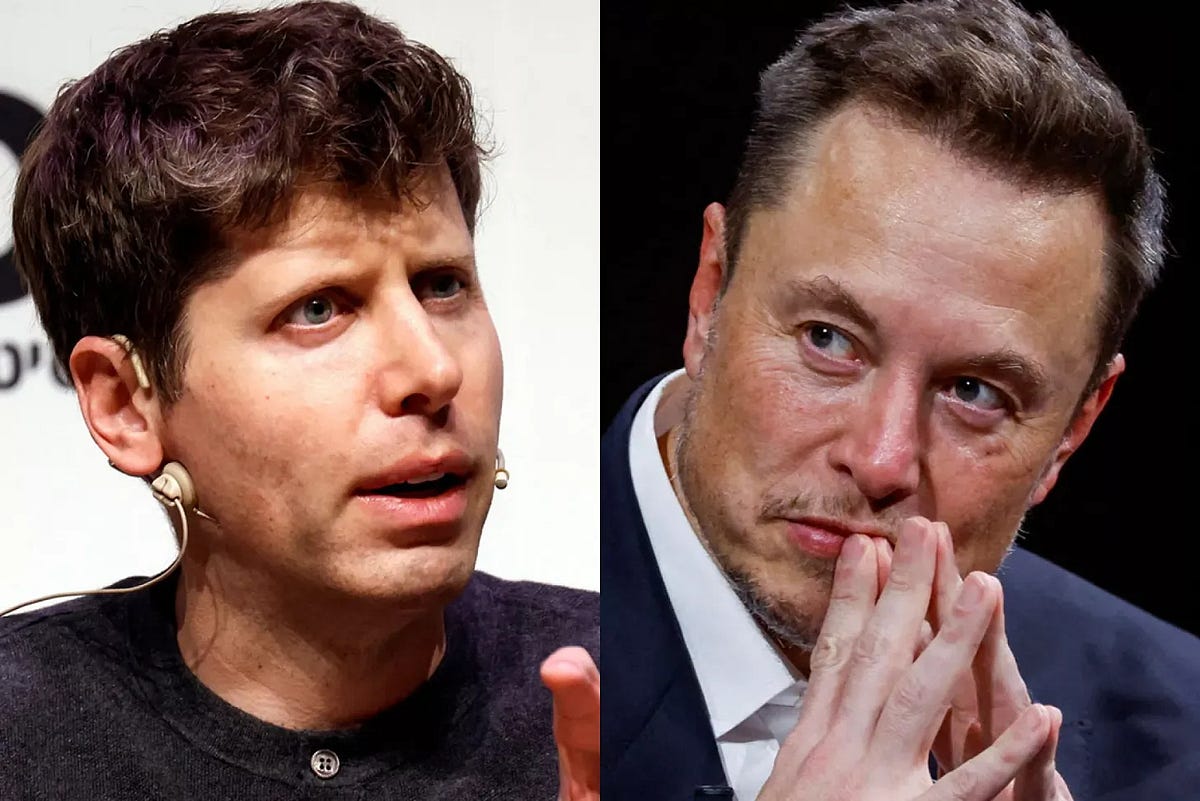Concepts de base
Elon Musk filed a lawsuit against OpenAI and Sam Altman due to their shift from a non-profit, open-source AI lab to a for-profit, closed-source AI startup. The core argument revolves around the breach of the initial agreement and the implications of this transition.
Résumé
Elon Musk has taken legal action against OpenAI and Sam Altman over their transformation from a non-profit to a for-profit entity. The lawsuit highlights concerns about AGI's threat to humanity, the evolution of OpenAI's structure, and breaches in the original agreement. Musk's fear of losing control over AI development is at the center of this legal dispute.
Musk's lawsuit stems from his long-standing apprehension about AGI's potential dangers since 2012. He aimed to prevent Google and DeepMind from dominating AI development due to differing views on its impact on humanity. OpenAI was initially established as an open-source non-profit organization in response to these concerns but later shifted towards becoming a closed, for-profit entity.
Despite receiving funding from Musk and releasing several successful AI models like GPT-2 and GPT-3, OpenAI deviated from its original mission by not publishing technical papers for GPT-4 in 2023. This change coincided with adding a for-profit arm in 2019 and granting Microsoft exclusive rights to certain technologies in 2020. These actions led to Musk's decision to pursue legal action against OpenAI and its leadership.
Elon Musk-OpenAI Lawsuit Explained in 5 Mins
Stats
Elon Musk filed a lawsuit against OpenAI and Sam Altman.
OpenAI shifted from being a non-profit, open-source lab to a for-profit, closed-source startup.
The Founding Agreement aimed at achieving AGI for the benefit of humanity.
OpenAI did not publish technical papers for GPT-4 in March 2023.
In 2019, OpenAI added a for-profit arm.
Microsoft received an exclusive license for integrating GPT-3 into its products.
Citations
"OpenAI changed its structure over the years by adding a for-profit arm."
"Musk has been critical of OpenAI’s gradual shift towards becoming a closed-source AI startup."
Idées clés tirées de
by Alberto Rome... à albertoromgar.medium.com 03-01-2024
https://albertoromgar.medium.com/elon-musk-openai-lawsuit-explained-in-5-mins-412cfd02a4ed
Questions plus approfondies
What are the potential implications of transitioning from an open-source non-profit model to a closed, for-profit one?
The transition from an open-source non-profit model to a closed, for-profit one can have several implications. Firstly, it may lead to restricted access to AI technologies and advancements that were previously freely available in the open-source model. This could hinder innovation and collaboration within the AI community as proprietary interests take precedence over shared knowledge. Additionally, moving towards a for-profit model may prioritize financial gains over societal benefits, potentially leading to ethical concerns regarding the use and impact of AI technologies on individuals and society at large. The shift in focus from serving humanity's interests to maximizing profits could result in less transparency and accountability in how AI systems are developed and deployed.
How might Elon Musk's personal views on AI development influence his decisions regarding lawsuits against organizations like OpenAI?
Elon Musk's personal views on AI development play a significant role in influencing his decisions regarding lawsuits against organizations like OpenAI. Musk has been vocal about his concerns regarding Artificial General Intelligence (AGI) posing existential threats to humanity if not properly controlled or regulated. His preference for prioritizing human values over technological advancement is evident in his criticism of companies like Google-DeepMind and now OpenAI shifting towards closed, for-profit models that may prioritize commercial interests over ethical considerations. Musk's fear of AGI superseding human control likely motivates him to take legal action against entities he perceives as deviating from their original mission of developing beneficial AGI technology for all of humanity.
How can ethical considerations be balanced with technological advancements in artificial intelligence?
Balancing ethical considerations with technological advancements in artificial intelligence requires a multi-faceted approach that considers various stakeholders' perspectives and impacts. One way is through establishing clear guidelines and regulations governing the development and deployment of AI systems to ensure they align with ethical principles such as fairness, transparency, accountability, privacy, and safety. Ethical frameworks should be integrated into every stage of the AI lifecycle—from design to implementation—to mitigate potential risks associated with biased algorithms or unintended consequences.
Furthermore, fostering interdisciplinary collaborations between technologists, ethicists, policymakers, researchers, and other stakeholders can help identify potential ethical dilemmas early on during the development process. Encouraging diversity within teams working on AI projects can also promote different viewpoints that contribute to more ethically sound decision-making processes.
Ultimately, promoting responsible innovation practices where ethics are considered integral components alongside technical advancements will help create trustworthy AI systems that benefit society while minimizing harm or negative repercussions associated with unchecked technological progress.
0
